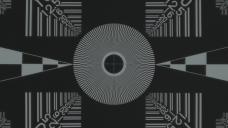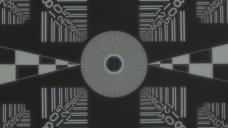
-
@Shaveblog - I own 3 adapters and they're all more or less the same, with extremely short throws...about 1/2". But you're right , I still haven't decided on which speedbooster. That's good to know that the throw is sufficient, but how do you know what aperture you're using ? Using auto iso would accomplish the same thing i.e. a smooth exposure ramp, w/o changing aperture and I'd prefer to change iso than aperture. I guess I could see a need if you wanted to go from extremely shallow to deep dof in a single shot, and that's where the rj could work. I've got an extra 50mm I'm considering sacrificing as a learning curve to de-click .
-
It sounds like we're approaching the GH2 from different backgrounds. You sound like you shoot the GH2 more like a consumer camcorder than a cinema camera. I have never and would never use auto-ISO, and could care less what the little number is on the lens barrel - I'm looking at the image and making exposure and aperture decisions based on how deep I want the DOF to be. I never think, "I want this shot to be f4".
Yes, the aperture control on the RJ Speedbooster is longer throw than the regular FD adapters that have "open/close" rings. It's actually usable as a continuous aperture ring, and was a pleasant surprise when I first got the RJ.
-
Nope, as a film shooter. With film you didn't have the luxury of changing iso, and shutter speed and aperture were the only variables. Modern world ! But more doc style than cine style. There's many reasons to want to know what aperture your shooting at , more than just dof for example. Diffraction limit is one. I never like to shoot above f11 for instance.
-
You do know the GH2 has a live EVF, yes? Better to treat it as a modern digital camera rather than a film camera. Rather than estimate what a given f-stop and ISO will look like, you can make these decisions in real time. If you don't care for f11 on a lens, you'll see whatever issues you're trying to avoid while adjusting the aperture ring. Using the RJ Speedbooster I usually stay somewhere between short of wide open and well short of fully stopped down. Eyeballing it usually winds up with the iris stopped down to between f2.8 and f5.6.
-
To each his own - if auto ISO works best for you and your shooting situation, more power to you. The few times I've shot live theater I got perfectly fine results with a fast lens, ISO 1250, exposing for the actors' faces, and Neat Video later to clean up the shadows. I'm not sure how auto-ISO would improve upon that, and I hate that ramping up, ramping down effect when I see auto-ISO video. It's worse than hunting AF.
The analogy I always come back to is the auto-everything mode on DSLRs. How many friends have I known who went out and bought a 5D because they wanted a "real camera" only to leave it in auto-everything mode and shoot medium size JPGs with the long end of the kit zoom? Hundreds. How many great looking photos have I seen from any of these people? Zero. The best looking footage always comes from folks who go all-manual, learn how to get the very best out of what are often quite pedestrian cameras, and approach the shoot itself as just the beginning of the image creation process. And the same thing goes for video, IME.
-
Please make new topic, if you want to continue discussion not related to adapters.
-
Back on-topic with the RJ's aperture control...
I can confirm @Shaveblog 's description of the aperture ring being able to perform click-less f-stop pulls while shooting video. However, since my only Nikon-mount lens for my Nikon RJ speed boost adapter is already a cine Samyang 25mm 1.5, I don't need another clickless aperture.
Still, it's intriguing how the aperture behaves on the adapter. As Shaveblog says, I need to have the lens's own aperture closed-up for the RJ's aperture to work. I'm wondering if shooting like that is using a different part of the lens? Is it doing anything at all to the image, say different shaped bokeh?
-
I am currently stuck a bit deciding which RJ version to buy for my Blackmagic Pocket (bmpcc) so very sorry for this "complex" post.
My lenses are...
M42: Helios 44-2, Mir-1, Pentax Super Takumar 28/3.5 Nikon: NIKKOR C auto 43-86/3.5 (on its postal way) EF: Canon EF 50mm f1.8 II - not woth selling ;-) Anamorphic: Sankor 16c
The choices are:
- The EF way:
- Should I get an RJ EF mount to adapt everything else (although I am hardly using my Canon lens)?
- If yes: which adapters would be best to maintain infinite focus?
- Would the costs of the different single adapters be higher than getting two RJs (M42 and Nikon)?
- The M42 and Nikon way: Should I get an RJ M42 mount to avoid stacking AND a Nikon seperately? ...and make it a bit more fun:
- Maybe a friend will give me his old Minolta MF lenses (probably MD) - how to adapt that one?
My budget does not allow to get all combinations ;-)
Thank you a lot for helping my head thinking this over!
- The EF way:
-
Minolta MD is not properly adaptable to either M42, Nikon or Canon EF (only with Glas-Adapters that will ruin your image, and add some crop)
If you use Nikon/M42 usually, I'd stick with that route. You can adapt both to EF, but while M42 adapts nicely you can get wiggle-issues with Nikon, a lot. If not in the beginning, shortly after. More elegant. The Canon EF isn't worth it anyway, if you ask me. Dump it for a cheap Nikon 50mm f/1.8 or equivalent for the M42 mount, and have same quality at better handling (including aperture control that you won't have with any of these adapters) I bought the EF one so I can use "anything", but this was only a temporary solution. I actually wanted to get a better NIK-EF Adapter, but as the best ones (Novoflex) cost actually more than a second booster, I asked myself if it were that wise... :)
From my experience, the Sankor isn't fun in any combination, but I wish you good luck with that :)
-
@CameraRick Thank you for the information!
I have read about problems about the Metabones speed booster Nikon->MFT/BMpcc and M42 due to the depth of M42 adapters. It could scratch the optics - do you have ever experienced this?
What kind if problems have you had with using the EF version?
-
@Vitaly_Kiselev Great, that's a big help! So I would have no problems to use my M42 lenses on the RJ Lens Turbo Nikon>MFT(bmpcc) with such a simple adapter?
-
it isn't able to focus infinity, just for macro shooting
From adapter description. Please carefully check the table I linked.
-
Comparing Helios 58mm F2 with Simple M42 to M43 Adapter vs. Cheap M42 to Nikon Adapter with Lens + Nikon to M43 RJ Lens Turbo.
Images are 100 % Crops from 4k @ F2 and ISO 200

 Helios_58mm_F2_with_M43_Adapter.jpg1920 x 1080 - 528K
Helios_58mm_F2_with_M43_Adapter.jpg1920 x 1080 - 528K
 Helios_58_with_M42_to_Nikon_with_Lens + RJ_Speedbooster.jpg1920 x 1080 - 513K
Helios_58_with_M42_to_Nikon_with_Lens + RJ_Speedbooster.jpg1920 x 1080 - 513K -
However, any idea if the lens turbo might change the focus point? For example, in order to focus on infinity I need to dial back to 10m mark.
Check earlier posts in this topic. Adapter allow to tune slightly optic block so it'll be all good.
-
@ICProductions said (March 9)
Ok - I saw a post saying adjusting the back focus/optical block is possible, but no actual directions on how to do it.
ditto
-
Huh, if you turn the optical block position of infinity point slightly changes.
Howdy, Stranger!
It looks like you're new here. If you want to get involved, click one of these buttons!
Categories
- Topics List24,039
- Blog5,725
- General and News1,375
- Hacks and Patches1,153
- ↳ Top Settings33
- ↳ Beginners256
- ↳ Archives402
- ↳ Hacks News and Development56
- Cameras2,384
- ↳ Panasonic995
- ↳ Canon118
- ↳ Sony156
- ↳ Nikon96
- ↳ Pentax and Samsung70
- ↳ Olympus and Fujifilm102
- ↳ Compacts and Camcorders300
- ↳ Smartphones for video97
- ↳ Pro Video Cameras191
- ↳ BlackMagic and other raw cameras132
- Skill1,960
- ↳ Business and distribution66
- ↳ Preparation, scripts and legal38
- ↳ Art149
- ↳ Import, Convert, Exporting291
- ↳ Editors191
- ↳ Effects and stunts115
- ↳ Color grading197
- ↳ Sound and Music280
- ↳ Lighting96
- ↳ Software and storage tips266
- Gear5,420
- ↳ Filters, Adapters, Matte boxes344
- ↳ Lenses1,582
- ↳ Follow focus and gears93
- ↳ Sound499
- ↳ Lighting gear314
- ↳ Camera movement230
- ↳ Gimbals and copters302
- ↳ Rigs and related stuff273
- ↳ Power solutions83
- ↳ Monitors and viewfinders340
- ↳ Tripods and fluid heads139
- ↳ Storage286
- ↳ Computers and studio gear560
- ↳ VR and 3D248
- Showcase1,859
- Marketplace2,834
- Offtopic1,329








